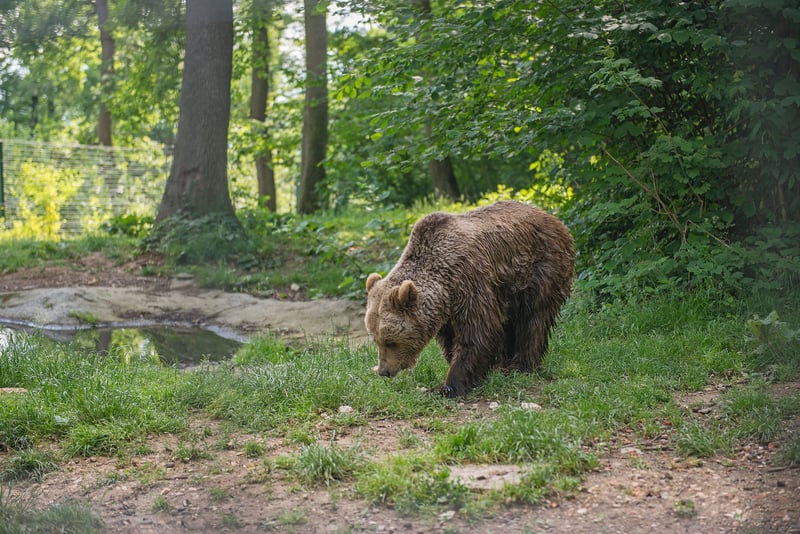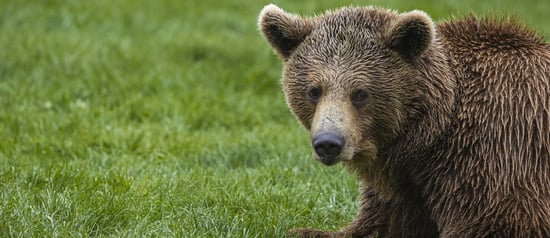
Building a better world for wildlife
News
When wild animals are left in the wild and people keep a safe distance and protect wild habitats, the planet becomes a much safer, healthier place. Together we can achieve a global ban on the cruel, dangerous and unnecessary trade in wild animals
The coronavirus (COVID-19) is thought to be linked to a live animal market – spaces where live and dead animals are sold, and are often kept in crowded conditions. The current pandemic shines a harsh spotlight on the cruel treatment of wild animals globally for commercial gain.
It’s also showing the world-shattering effects that trading wild animals can have on human health. This gives us an unprecedented opportunity and an extraordinary task – to end the wildlife trade.
“Out of all the despair the coronavirus has presented us with, there is a ray of hope and that is making the world better for wildlife. We see it as our mission to make sure that happens,” says Kate Nustedt, our global director of animals in the wild.
"The demand for wild animals for use in medicine, for food, to be kept as pets or for that once in a lifetime vacation experience causes them mass suffering. It’s now clear that this demand also comes at the cost of human health, the environment, and the economy.”
Making the links
The threats of zoonotic disease transmission are inherent in every step of the wildlife trade, whether it’s legal and illegal makes no difference. This includes capture, farming, transport, physical trade or online and any keeping or use of wild animals by people.
Without global and domestic action to protect wild animals and end the wildlife trade, future pandemics will become increasingly likely and worse.
“We have been warning of the threats and dangers of treating wild animals cruelly and the links with zoonotic diseases – those that transfer from animals to humans. Wild animals are thought to be the source of at least 70% of all emerging zoonotic infectious diseases.
“We have seen the links with Ebola and SARS for example. But I couldn’t have imagined that what we are seeing would be on this massive, global scale, rather than restricted to a specific region or connecting countries,” says Kate.
Global action need
“Every minute of every day, animals are taken from the wild and exploited for commercial gain. This includes being traded for tourism, as exotic pets and as medicine. And the main reason for this is worldwide demand,” says Kate.
Examples of farmed wild animals include the 24,000 bears farmed in Asia for their bile for use in traditional Asian medicine. In South Africa, lions are bred and farmed for people’s entertainment – including for ‘selfies’ and trophy hunting – and for export into the traditional Asian medicine trade. Over 1,500 tigers are living in captivity in Thailand alone. These tigers have either been traded, many of them illegally, or bred into a lifetime of suffering for entertainment.
Over the next few months, we’ll press global leaders of the G20, meeting in Saudi Arabia in November, to commit to a global ban on the wildlife trade. This highly influential body is an international forum for the governments and central bank governors from 19 countries and the European Union.
The G20 is important because it carries enormous economic and political weight; its member governments typically move more quickly than most UN institutions.
A baby tiger spends the entire day in this tiny cage; tourists pay to feed these baby tigers with milk
Wild animals belong in the wild. When they are left in the wild and people keep a safe distance and protect wild habitats, the planet becomes a much safer, healthier place.
Join us by signing our petition now to end the wildlife trade. Forever.
Wild animals belong in the wild. When they are left in the wild and people keep a safe distance and protect wild habitats, the planet becomes a much safer, healthier place.
Wildlife trade
Global wildlife trade is an inhumane industry that cruelly exploits our planet’s wildlife for financial gain.
Our work
We're working in Australia and around the world to end the needless suffering of animals by inspiring people to change animals’ lives for the better.


